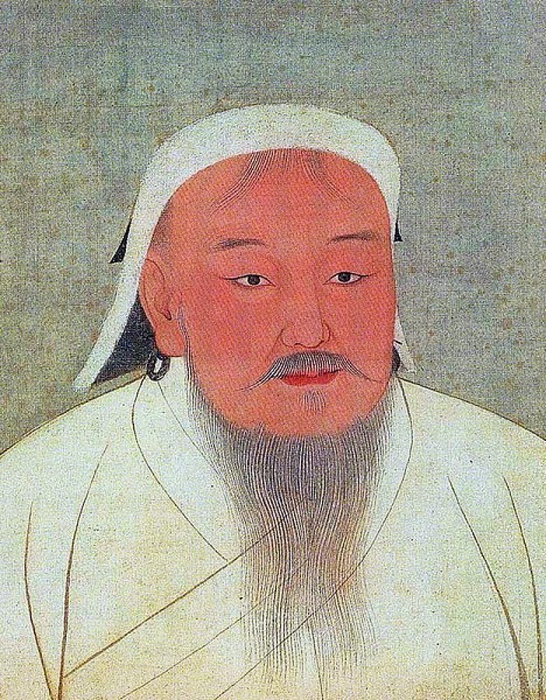
A pleasantly warm and wet spell in central Mongolia eight centuries ago may have propelled the rise of Genghis Khan, AFP reports according to a US study. The research was based on an analysis of tree rings spanning 11 centuries, showing that the conqueror seized power during dry times and was able to expand his empire across Asia during an unusual stretch of good weather. The years before Genghis Khan's rule were marked by severe drought from 1180 to 1190, said the study in the Proceedings of the National Academy of Sciences. But from 1211 to 1225, as the empire spread, Mongolia saw an unusual period of sustained rainfall and mild temperatures. "The transition from extreme drought to extreme moisture right then strongly suggests that climate played a role in human events," said study co-author Amy Hessl, a tree-ring scientist at West Virginia University. "It wasn't the only thing, but it must have created the ideal conditions for a charismatic leader to emerge out of the chaos, develop an army and concentrate power." For the oldest samples, Hessl and lead author Neil Pederson, a tree-ring scientist at Columbia University's Lamont-Doherty Earth Observatory, focused on an unusual clutch of trees found while researching wildfires in Mongolia. The strand of gnarled, stunted Siberian pines were emerging from cracks in an old solid-rock lava flow in the Khangai Mountains, according to a statement from Columbia. Trees living in such conditions grow slowly and are particularly sensitive to changes in weather, so they provided an abundance of data to study. Some of the trees had lived for more than 1,100 years. One piece of wood they found had rings going back to about 650 BC. Researchers compared those samples to younger fallen trees and some pieces bored from living trees. "Through a careful analysis of tree-ring records spanning eleven centuries, the researchers have provided valuable information about a period of great significance," said Tom Baerwald, a program director for the National Science Foundation, which funded the research. Genghis Khan died in 1227, but his descendants ruled most of what became modern Korea, China, Russia, eastern Europe, southeast Asia, India and the Middle East.





A pleasantly warm and wet spell in central Mongolia eight centuries ago may have propelled the rise of Genghis Khan, AFP reports according to a US study.
The research was based on an analysis of tree rings spanning 11 centuries, showing that the conqueror seized power during dry times and was able to expand his empire across Asia during an unusual stretch of good weather.
The years before Genghis Khan's rule were marked by severe drought from 1180 to 1190, said the study in the Proceedings of the National Academy of Sciences.
But from 1211 to 1225, as the empire spread, Mongolia saw an unusual period of sustained rainfall and mild temperatures.
"The transition from extreme drought to extreme moisture right then strongly suggests that climate played a role in human events," said study co-author Amy Hessl, a tree-ring scientist at West Virginia University.
"It wasn't the only thing, but it must have created the ideal conditions for a charismatic leader to emerge out of the chaos, develop an army and concentrate power."
For the oldest samples, Hessl and lead author Neil Pederson, a tree-ring scientist at Columbia University's Lamont-Doherty Earth Observatory, focused on an unusual clutch of trees found while researching wildfires in Mongolia.
The strand of gnarled, stunted Siberian pines were emerging from cracks in an old solid-rock lava flow in the Khangai Mountains, according to a statement from Columbia.
Trees living in such conditions grow slowly and are particularly sensitive to changes in weather, so they provided an abundance of data to study.
Some of the trees had lived for more than 1,100 years. One piece of wood they found had rings going back to about 650 BC.
Researchers compared those samples to younger fallen trees and some pieces bored from living trees.
"Through a careful analysis of tree-ring records spanning eleven centuries, the researchers have provided valuable information about a period of great significance," said Tom Baerwald, a program director for the National Science Foundation, which funded the research.
Genghis Khan died in 1227, but his descendants ruled most of what became modern Korea, China, Russia, eastern Europe, southeast Asia, India and the Middle East.


 +7 (777) 001 44 99
+7 (777) 001 44 99















































